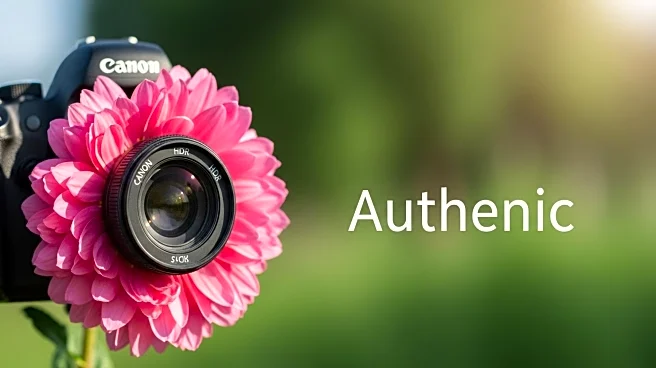What is the story about?
What's Happening?
Aerie, a clothing brand owned by American Eagle Outfitters, has announced a commitment to exclude AI-generated imagery from its advertising campaigns. This decision is part of Aerie's ongoing #AerieReal campaign, which began in 2014 with a pledge to stop retouching images of people and bodies. The brand's Chief Marketing Officer, Stacey McCormick, emphasized the importance of using real people in advertisements and maintaining transparency with consumers. Aerie's stance is a response to the growing prevalence of generative AI in advertising, which has been met with criticism for undermining human creativity and connection. The brand aims to inspire others in the industry to follow suit.
Why It's Important?
Aerie's decision to reject AI in advertising highlights a significant shift in the industry towards authenticity and transparency. As generative AI becomes more common, concerns about its impact on human creativity and the authenticity of advertising have grown. By committing to real imagery, Aerie aligns with consumer expectations for genuine representation, potentially setting a precedent for other brands. This move could influence industry standards and consumer trust, as brands that prioritize authenticity may gain a competitive edge. The decision also reflects broader societal trends favoring transparency and ethical practices in business.
What's Next?
Aerie's commitment may prompt other brands to reconsider their use of AI in advertising, potentially leading to industry-wide changes. As the brand requires its partners and creators to adhere to the same standards, there could be a ripple effect influencing advertising practices beyond Aerie. The ongoing dialogue about AI's role in advertising may lead to new regulations or guidelines to ensure ethical use. Additionally, consumer reactions to Aerie's pledge could provide insights into market preferences, guiding future advertising strategies.
Beyond the Headlines
The rejection of AI in advertising by Aerie raises ethical questions about the role of technology in creative industries. It challenges the notion that technological advancements should always be embraced, highlighting the importance of preserving human artistry and connection. This decision may contribute to a broader cultural shift towards valuing authenticity over technological innovation in certain contexts. As brands navigate the balance between technology and human creativity, the implications for advertising, consumer trust, and industry standards could be profound.















